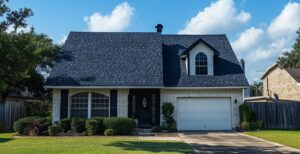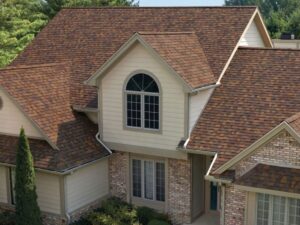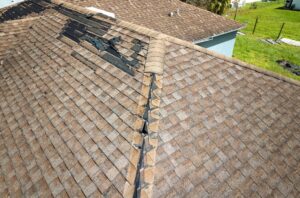At Best Choice Roofing of Colorado Springs, we understand the challenges the Colorado climate brings to homeowners. With a mix of sunshine, snowstorms, and everything in between, your roof faces unique stresses year-round. That’s why choosing the right roofing partner is crucial—and we’re here to help. Whether you’re planning a roof replacement or simply trying to understand the structure over your head, one key factor that makes all the difference is roof pitch. So, what is roof pitch, and how does roof pitch affect roof replacement? Let’s dive in!
What Is Roof Pitch?
Put simply, roof pitch refers to the steepness or angle of your roof. It’s calculated as the ratio of the vertical rise (how high the roof goes) to the horizontal span (how far the roof extends). In other words, it measures how “sloped” your roof is. For example, a 6:12 pitch means your roof will rise about 6 inches for every 12 inches it runs horizontally.
Roof pitch isn’t just about aesthetics—it’s a key structural detail. A steeper pitch helps shed snow and rain more effectively, which is particularly important in places like Colorado Springs, where we see plenty of both. Lower-pitched roofs, on the other hand, can lend themselves to more modern architectural styles but require careful planning for weather resilience.

How Roof Pitch Affects Roof Replacement
So, why does roof pitch matter when it comes to roof replacement? For starters, it influences almost every aspect of the process—from material selection to labor costs.
- Material Compatibility: Some roofing materials work better with specific pitches. For steep-pitched roofs, shingles, tiles, and metal roofing are popular because they stay securely in place and handle gravity well. For low-pitched or flat roofs, materials like rubber membranes or modified bitumen may be better suited to prevent water pooling.
- Installation Challenges: Steep roofs are more challenging to work on, often requiring special equipment or harnesses for safety. This can increase the labor time and cost of your roof replacement.
- Weather Performance: In Colorado Springs, where snow can pile up quickly, having a higher-pitched roof can minimize the potential for ice dams and leaks. If your roof has a low pitch, it might need additional reinforcements or drainage solutions to handle the snow load.
- Longevity and Maintenance: The slope of your roof can also affect its lifespan. A steep roof often lasts longer because debris, rain, and snow don’t linger as long, reducing wear and tear. During your replacement, we’ll assess your roof’s pitch to ensure the materials and design maximize durability in Colorado’s diverse climate.
Why Choose Best Choice Roofing of Colorado Springs?
At Best Choice Roofing, we take the guesswork out of roof replacement. Our team of experts evaluates your roof pitch and climate needs to recommend the best materials and strategies for a roof that lasts. We’re passionate about providing you with a sturdy, beautiful roof that can handle anything Colorado Springs throws its way.
Ready to Upgrade Your Roof?
Whether you’re dealing with a leaky roof or simply ready for a stylish upgrade, Best Choice Roofing of Colorado Springs is your trusted partner. Let us help you navigate the complexities of roof pitch and ensure a smooth roof replacement process. Call us today for a free consultation, and let’s get started on your next roofing project.
Your roof deserves the best choice—so make it today!



